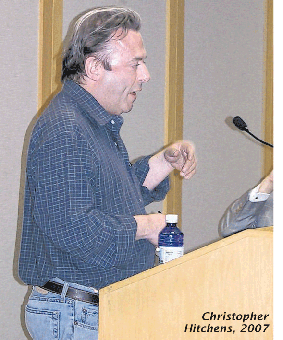Recently, I read again the story of the encounter between David and Goliath in the Valley of Elah, and how the champion of the Philistines taunted the people of God.
Goliath was arrayed in impressive armour of bronze and heavily armed. But David, who declined to wear the armour of King Saul, approached his awesome opponent in the name of the Lord.
What impressed me most was how David was grieved in his spirit that the Lord’s name should be profaned in such a way by Goliath. He had an unshakeable confidence that God would grant him victory in this amazing confrontation.

Goliath taunted the army of Israel and discouraged God’s people. But the most unlikely person (a shepherd boy) had the most astonishing victory over the most powerful adversary, in an unpredictable manner, with a sling-shot.
Confidence in God
The words of that youth are a trumpet call for the valiant to have more confidence in God, and not fear in the face of apparently overwhelming odds: ‘You come to me with a sword and with a spear and with a javelin, but I come to you in the name of the Lord of hosts … whom you have defied. This day the Lord will deliver you into my hand’ (1 Samuel 17:45-46).
Some of today’s most influential atheists are publicly taunting God’s people and profaning God’s name. They are discouraging our youth, while arousing righteous indignation amongst mature believers. But who will step forward to meet the giant?
Although atheism is still a minority view in Western culture, it has nevertheless grown immensely in popularity. Historically, atheism was once seen as scandalous, eliciting hostility in wider British society, but today in many circles it is considered a well respected world view.
There are many contemporary celebrities, actors, musicians and writers in our society who would profess to be atheists. Most have a ‘live and let live’ attitude. But there are also those atheists who have achieved celebrity status precisely because they are exponents of atheism.
Not only do these not believe in God personally, but they actively encourage others in disbelief. Using their influence to that end, they are part of a movement now known as neo-atheism. For them, the approach is not passive non-belief , but aggressive atheism.
Christopher Hitchens
After the death of well-known atheist Christopher Hitchens, obituaries everywhere described him in glowing terms as an articulate journalist, incomparable critic and masterful rhetorician. He was an intellectual with a world platform. His works included God is not great and The portable atheist.
But surely a truer assessment of his influence would identify him as inherently anti-religious and espousing prejudicial views not only untrue, but unfair and unkind? He once described Mother Theresa as ‘a lying, thieving, Albanian dwarf’.
I certainly did not share Mother Theresa’s theological views and critiqued them in my book Cultivating Christian character: the fruit of the Spirit, but Hitchens’ comment was typical of the poisoned penmanship he and others have used to promulgate contempt for those with religious views.

Hitchens was not just hard-headed, but hard-hearted and harsh — a harbinger of what aggressive atheism brings. No wonder that there are now many pseudo-intellectuals on the band-wagon, counting it an open season on people of faith!
While such zealots for atheism are dogmatic in their opinions, I have found most are profoundly ignorant of philosophical theology, in the fields of ontology (metaphysics dealing with the nature of being) and epistemology (philosophy of knowledge).
Richard Dawkins is another, and probably the most well known, advocate of atheism today. He believes science and religion are mutually incompatible. And he and others like him have used the word ‘fundamentalism’ as a pejorative label for a world view shaped by religious convictions.
Fanaticism
‘Fundamentalism’ is the convenient term used by neo-atheists to dishonestly lump together suicide bombers and ordinary Christian worshippers. Yet ironically it is the atheists’ stridency, coupled with their lack of perspective and lack of intellectual rigour, which tells us where the fanaticism is really to be found.
Atheists may huff and puff at ‘right-wing Christian fundamentalists’ who dare to engage in scientific debate for intelligent design, but surely origins must be discussed scientifically, as well as philosophically and theologically?
Yet atheism crushes the interrogative, scientific spirit and insists on its doctrinaire view as the only legitimate creed. Evolutionism (an unproven and un-provable theory) is now the new orthodoxy, with its advocates violently intolerant of disagreement.
Those scientists and others who do not subscribe to evolution are deemed heretics and treated as outcasts. Perhaps those on the watch for ‘hate crimes’ should examine what some ‘defenders’ of evolution say about a minority of reputable scientists who don’t espouse their views? You don’t have to surf for long on the internet to find some appalling slanders.
There is a joke told about a Roman Catholic from the Republic of Ireland who during ‘the troubles’ unwittingly strayed into a Loyalist area of East Belfast.
He was approached by Loyalist paramilitaries, who heard him speaking in a local shop. They asked if he was a Protestant or a Roman Catholic and he replied that he was an atheist; whereupon, they asked him if he was a Protestant or Roman Catholic atheist!
Bold faith
The Irish joke reminds us that to flirt with an atheistic world view, while engaging in rites-of-passage religious rituals, is intellectually dishonest and hypocritical. Yet this is where many camp followers of aggressive atheism are — nominally ‘Christian’, but willing to hitch their wagon to atheism.
That is not good enough! Today there is a need for a bold and courageous faith in Christ. Such faith will have nothing to fear from its enemies. It will be reasonable, welcome intellectual inquiry and contribute positively to debates on social justice, human rights and the environment.
Genuine faith in Christ has always inspired altruism and charity and acted as a stimulus in developing an enduring system of jurisprudence. It has also produced an army of humble Christians who have worked tirelessly and selflessly in underdeveloped countries. And it has excelled in the field of doxological science (science conducted to the glory of God).
But what is the legacy of atheism? Let us not forget the pervasive atheism of the twentieth century socialist/Marxist experiments in the Soviet Union, Eastern Europe, China and North Korea — experiments that delivered dystopian nightmares rather than utopian dreams.
These regimes practised systematic censorship and the persecution of dissenting religious voices. Many Christians only found release by death from the prisons and prison camps to which they had been committed for the most trivial of offences.
Shepherds
However, God will not fail nor forsake his people; and he showed that in what he accomplished through David, the shepherd boy. David was not a professional and experienced warrior, although he had some experience in single-handedly defending his flock against bears and lions.
May God grant success to those courageous shepherds of his flock who step forward to defend the honour of the Lord against the giants who mock him andderide faith in his Son!
David emerged from obscurity into an improbable victory in the Valley of Elah. He selected five smooth stones from the brook and put them in his shepherd’s pouch. He entered that valley with a confidence in God and a desire ‘that all the earth may know that there is a God’ (1 Samuel 17:46).
He stepped into the valley to face a formidable foe and God granted him success. Those who possess similar qualities to David are needed today to act as valiant champions in the cause of the Lord. Yet ‘we do not war according to the flesh. For the weapons of our warfare are not carnal, but mighty in God for pulling down strongholds’ (2 Corinthians 10:3-4).
Kieran Beville



